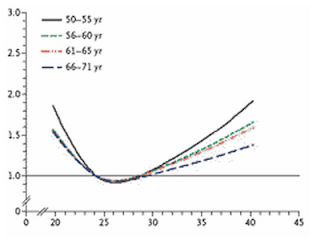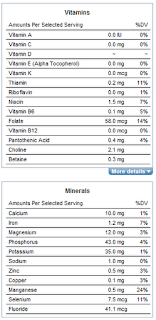The lowest-mortality BMI: What is its relationship with fat-free mass?

Do overweight folks live longer? It is not uncommon to see graphs like the one below, from the Med Journal Watch blog ( ), suggesting that, at least as far as body mass index (BMI) is concerned ( ), overweight folks (25 < BMI < 30) seem to live longer. The graph shows BMI measured at a certain age, and risk of death within a certain time period (e.g., 20 years) following the measurement. The lowest-mortality BMI is about 26, which is in the overweight area of the BMI chart. Note that relative age-adjusted mortality risk (i.e., relative to the mortality risk of people in the same age group), increases less steeply in response to weight variations as one becomes older. An older person increases the risk of dying to a lesser extent by weighing more or less than does a younger person. This seems to be particularly true for weight gain (as opposed to weight loss). The table below is from a widely cited 2002 article by Allison and colleagues ( ), where they describe a study of 10,169
